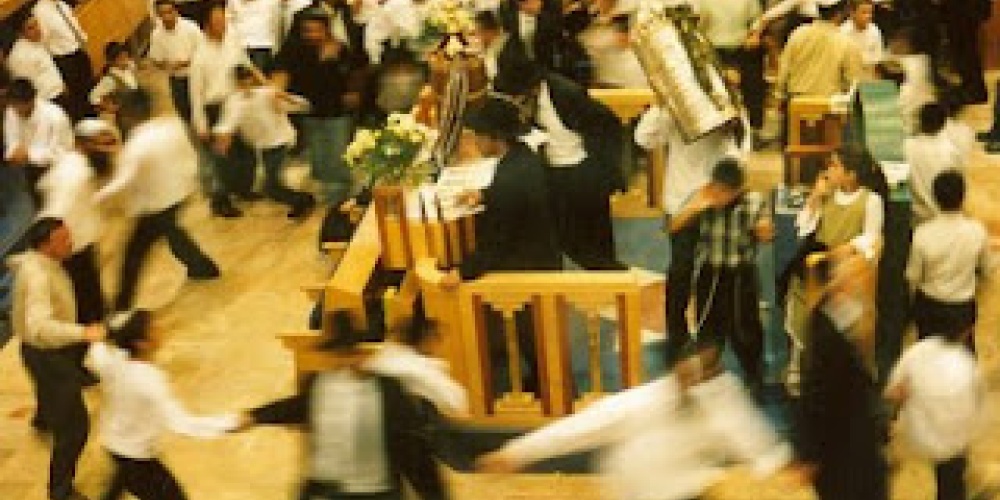
This week’s d'var Torah is sponsored in honour of the 80th birthday of Bashi (Esther) Burack by her children and grandchildren. May she go from strength to strength.
“And you shall take for you, on the first day, a beautiful fruit...and rejoice before the Lord, your G-d, for seven days”. Being in the presence of G-d is the ultimate in simcha, joy and happiness. How could it be otherwise?
To feel the closeness of the Creator is a most beautiful gift; one that is not easy to attain, but one we must never cease to strive for. “Worship G-d in happiness”, a verse that has been incorporated into our daily tefillot, not only expresses the joy a Jew should feel, but teaches that one who does not feel such joy is somewhat lacking in his service of G-d. The closeness we should feel to G-d after Yom Kippur leads to z’man simchateinu, the time of our happiness of Sukkot. Sukkot, in turn, culminates with Shmini Azeret and Simchat Torah.
V’Hayeeta ach sameach (Devarim 16:16). The word “ach” is one that comes to limit and to exclude all else, so that the verse should be translated as, “and you shall be only happy”. This verse, which is written in the context of all three pilgrim festivals, has specific reference to Shmini Azeret, where there is but the one mitzvah: to be happy. No sukkah, no lulav, just joy.
Yet, the presence of G-d brings out a deeper emotion, that of fear and awe. How could it be otherwise? For we of flesh and blood--here today and in the grave tomorrow, of whom there is not one who does not sin--the realization that all we do is in the presence of the Creator should send shivers down our spines. Hoshanna! We “cry out” to G-d to help us, to save us.
“Take a second tithe of all seed crops...and you shall eat this before the Lord, your G-d, in the place that He will choose... so that you will learn to fear G-d all your days” (Devarim 14:22-23). So begins the Diaspora Torah reading of Shmini Azeret. Eating (yes, even eating) our ma’aser sheni in Jerusalem, the place where G-d has chosen to focus His presence, is to lead to fear of G-d.
On the surface, fear of G-d and joy in His presence are mutually exclusive--or at least most difficult to reconcile. And thus, on Shmini Azeret, we focus on the obligation to fear G-d. The Torah reading, the prayer for rain (while in Canada, we may not fear the next drought, such fear is very palpable in Israel), and most noticeably, Yizkor, are all meant to help in further developing our awe of G-d. On the other hand, on Simchat Torah, the joy of our closeness to G-d reigns supreme. Dancing, singing, eating and drinking, even levity, are the features of the day. Both fear and joy are observed and celebrated, but on different days.
Of course, the above is only true outside the land of Israel. In Israel, Shmini Azeret and Simchat Torah are one and the same, celebrated simultaneously. In the land of Israel, that which is contradictory is resolvable. Fear and joy join together in our service of G-d. While it is impossible to describe in words, those who live in Israel--and to a lesser extent, even those who have visited--know that in Israel, fear and joy really do co-exist.
On the surface, Israel is a land of contradictions. How could it be otherwise? Two thousand years of history, tradition and modernity, varying cultures and customs and much more come together there. Yet, Israel is the land where “the eyes of the Lord, our G-d, are upon it all times” (Devarim 11:12). While man is full of contradictions, G-d is not. On Simchat Torah, we sing, “Torat Hashem temima, the Torah of G-d is perfect”. May we merit to properly apply that Torah so that all will recognize the simcha, the joy of a life full of Torah.

